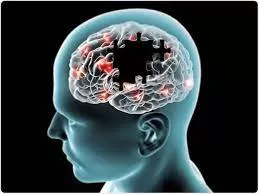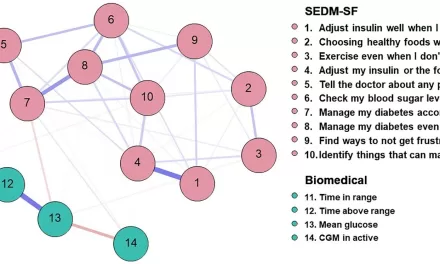
Australian scientists, including a researcher of Indian origin, have introduced a cost-effective and non-invasive blood test leveraging artificial intelligence (AI) and nanotechnology. This breakthrough can potentially forecast a person’s susceptibility to Alzheimer’s disease up to two decades prior to the manifestation of symptoms.
Researchers at The Australian National University (ANU) have devised a method utilizing nanotechnology and AI to scrutinize proteins in blood for early indicators of neurodegeneration. They achieved this by employing an ultra-thin silicon chip embedded with minuscule nanopores, which individually analyze proteins with the assistance of a sophisticated AI algorithm. A small blood sample is placed on the silicon chip and inserted into a portable device, roughly the size of a mobile phone. This device employs the AI algorithm to identify signatures corresponding to proteins signaling the early stages of Alzheimer’s.
While there is currently no cure for Alzheimer’s, ANU scientist Shankar Dutt emphasized that being aware of one’s risk two decades prior to a potential diagnosis could greatly enhance health outcomes for individuals. Dutt stated, “If that person can find out their risk level that far in advance, then it gives them plenty of time to start making positive lifestyle changes and adopt medication strategies that may help slow down the progression of the disease.”
The research team reported that the algorithm, outlined in the journal Small Methods, can be trained to simultaneously screen for various neurological conditions, including Parkinson’s disease, multiple sclerosis, and amyotrophic lateral sclerosis.
Co-author Professor Patrick Kluth, from the ANU Research School of Physics, explained that Alzheimer’s is generally diagnosed based on evidence of cognitive decline, by which point the disease has already inflicted significant damage on the brain. He added, “Early detection, which is vital for effective treatment, normally involves invasive and expensive hospital procedures such as a lumbar puncture, which can be physically and mentally taxing for patients. Our technique, on the other hand, requires only a small blood sample and patients could receive their results in near real-time.”
Kluth also noted that the quick and straightforward test could be administered by general practitioners and other clinicians, eliminating the need for a hospital visit. This development is particularly convenient for individuals residing in remote or regional areas.
The researchers likened the process of identifying proteins indicating early neurodegeneration to searching for a needle in a haystack. Dutt emphasized, “Blood is a complex fluid that contains more than 10,000 different biomolecules. By employing advanced filtration techniques and harnessing our nanopore platform, combined with our intelligent machine learning algorithms, we may be able to identify even the most elusive proteins.”











